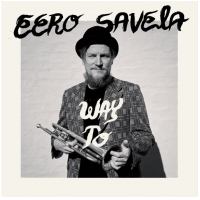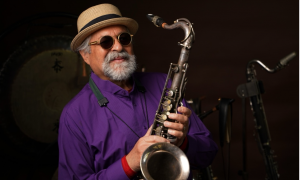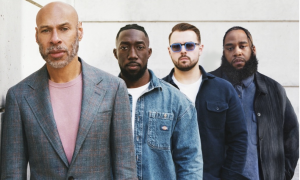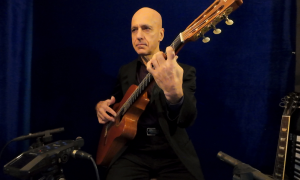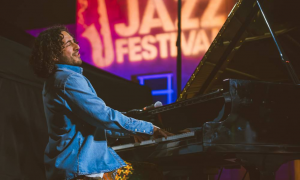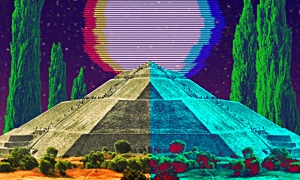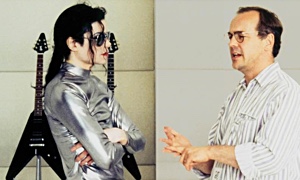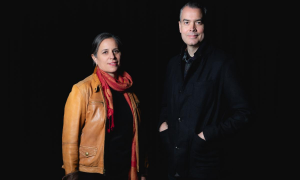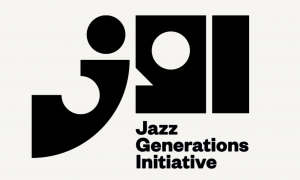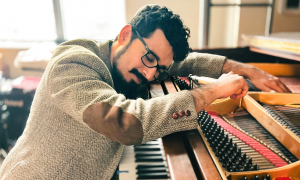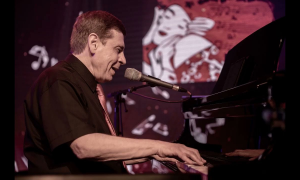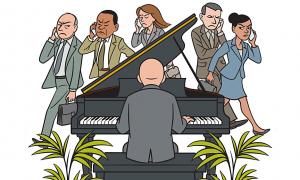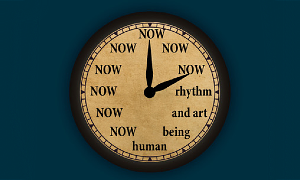Camel racing in Israel may sound outlandish, but there's a serious point. Keydar says Israel is systematically pushing camels a symbol of Bedouin culture into extinction.
Keydar lives in the desert, respects its harsh ways and wants Bedouins and camels to stay part of Israel's natural and cultural landscape. Toward this goal, Keydar is helping a dreamer produce a camel race at an abandoned desert airstrip. Besides, he can't finish his film, “Hump," without it.
He recently spoke to The Times about his vision.
So what do two nice Jewish guys, filmmakers, men of technology, have to do with camels and Bedouin life?
Before we are any of these things, we are people of the desert ourselves. We live in Mitzpe Ramon, the heart of the desert. As filmmakers, we document what is around us. This isn't a film about some remote culture; these are our next-door neighbors with whom we share the same geographic space but also another affinity. The desert is a hostile environment, a tough place to live. People living in the desert by choice, who share this life, also share a bond that is often stronger than religious belonging or other ties.
Why are the camels and Bedouin culture so important to you?
Our choice of topic is not accidental. We see these people as the last of the Mohicans they represent a vanishing culture.
Sadly, Israel is working systematically to push this culture and its symbols into extinction. It won't recognize camels as an agricultural sector and won't allocate grazing lands. Commercial feed is expensive, and many Bedouins are forced to give up camels. Israel is successfully eliminating a symbol of culture. And when you kill a symbol, the culture dies with it.
We see great value in preserving this culture not in a museum, but as a way of life. We want to see Bedouins continuing to live as people of the desert, and this is increasingly less possible. We do not want them to vanish from our landscape.
Can Bedouins still keep this way of life in a country like Israel?
It is possible. There are Bedouins who live a combination of modernity and progress on one hand and desert traditions on the other. It is not uncommon to see tents with antennas, satellite dishes, solar panels and a television, yet they preserve elements of Bedouin culture. Many Bedouins have a 4x4 pickup truck parked outside the tent, and next to it, a camel. It is a symbol of cultural pride.
Camels are a part of Bedouin culture. As a Jewish Israeli, are they really part of yours?
“If you look at the desert and see no camel, there is no desert," says one of the characters in the film. This is really the essence of it all. I am Jewish, was not born in a tent or into the Bedouin way of life. But camels are part of the Israeli landscape itself. Look at pictures of Israel 60 years ago, there were camels everywhere. They are as much a symbol of the land as the Star of David is of the state. And you don't strengthen one by weakening the other.
Will regional politics take to this kindly? Lebanon has already accused Israel of “stealing" falafel.
Look, I'm not presenting this as a genuinely Israeli culture. My intention is to honor a culture that is part of Israel's natural and human landscape. [There are] 250,000 Bedouins in the Negev. They are part of us, part of Israel. And no matter how you turn it, we are part of each other.
How has Israel treated the Bedouins?
One cannot ignore the political reality. The Bedouins are an Arab minority, one that is treated very poorly. Many communities don't have running water or sewage infrastructure. Today, they are the poorest population, with the least education and fewest resources, and the state does nothing to bridge this tremendous gap.
Throughout its history, Israel has made every possible mistake with the Bedouins the result of the existential fear that affects everything we do as a nation. We should rid ourselves of this fear.
Camel racing can restore Bedouin pride, but it won't buy them groceries or belonging. How will this help?







